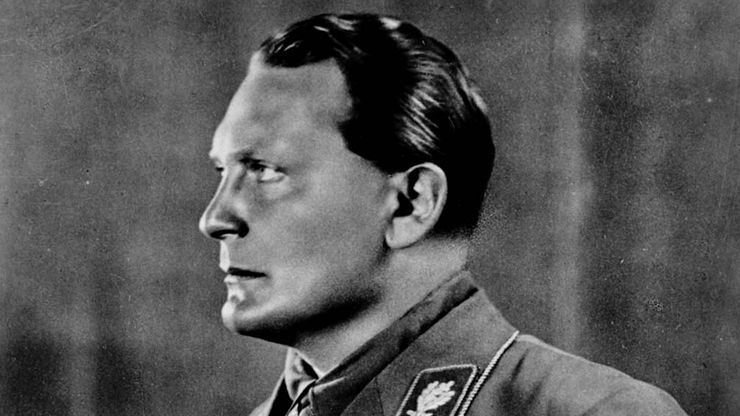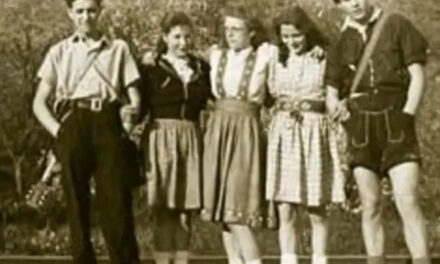One of the features of Germany not becoming a unified country until 1871 is that even into the first third of the 20th Century it did not have many developed national institutions. Prussia was the leader of the unification movement and first among equals of the new German states, and it didn’t cede control of its police and intelligence services or readily allow them to become integrated into a broader national network. The other former principalities also had their traditions, pre-existing organizations and turf to protect. To compare it to America, there was a lot of state control of internal security, and a lot of resistance to federal interference.
After the Nazis came to power in 1933, this played out in a predictable way. Herman Göring, as minister of the interior for Prussia, took control of the Prussian Secret Police, and he created a fiefdom that was independent from the national Ministry of the Interior under Wilhelm Frick. We now know this organization as the dreaded Gestapo. But it took time to develop into what it became.
What actually happened is that the federal Ministry of the Interior nationalized the security apparatus everywhere but Prussia, and then used the SS, under the control of Heinrich Himmler and Reinhard Heydrich, to take over Prussia as well. In this way, the Gestapo began as a continuation of the traditional Prussian secret police and then became the model for the whole country.
Finally, Germany had a national internal security organization which could overcome resistance from the particular states.
Something along these lines was probably necessary to the functioning of a modern nation-state, but when federal authority comes in the form of the Gestapo, it’s a very unhappy development. From an American perspective, it’s easy to see the value in each of our 50 states having their own internal security organizations which retain a lot of sovereignty.
Prussia was important to Germany not only as the most powerful state but the site of the country’s capital in Berlin. In that way, it was equivalent to the District of Columbia. But Washington DC is unique in that it is not part of any of our 50 states and is technically run by the federal government. So, it’s a little confusing to see a headline in the Washington Post which reads: Trump threatens federal takeover of D.C. after attack on DOGE worker. After all, the feds already control DC.
“If D.C. doesn’t get its act together, and quickly, we will have no choice but to take Federal control of the City, and run this City how it should be run, and put criminals on notice that they’re not going to get away with it anymore,” Trump wrote Tuesday on Truth Social…
…“Perhaps it should have been done a long time ago…If this continues, I am going to exert my powers, and FEDERALIZE this City. MAKE AMERICA GREAT AGAIN!”
So, what does that threat mean?
Democrats have long controlled every branch of local government, though D.C. officials wield limited power. Congress can nullify local laws and can give the president’s administration control of much of the city’s public safety apparatus. D.C. won limited self-government in 1973 when Congress passed the Home Rule Act, giving residents the power to elect their own mayor and city council.
What this really amounts to is a takeover of left-leaning governance by right-leaning governance. And, in this respect, it pays to understand the history in Prussia. The Prussian Secret Police were set up in 1848 to suppress pro-Democratic and anti-monarchial forces that were ascendent throughout out Europe in that year. In 1851, twenty years before the unification of Germany, the Prussian secret police set up the Police Union of German States, which was an effort to coordinate internal security in several German-speaking reactionary monarchial principalities. It opposed just not emerging communism, but all anti-monarchial principles, including full franchise for male voters, freedom of the press, and workers’ rights. It was a secret police force for princes and kings. Even before the Nazis took power, the Prussian Secret Police were a hammer against the left, and this was true under the Weimar Republic. What made the Gestapo different was that it was manned by committed supporters of Adolf Hitler, beginning with Herman Göring at the top.
Today, the top person in DC is U.S. Attorney Jeanine Pirro, who is about as committed a MAGA member as you can find. She’s backed up by top people at the FBI like Kash Patel and Dan Bongino and at the Department of Justice by attorney general Pam Bondi. These latter-day Nazis are ready to seize control of internal security in the nation’s capital in the service of their latter-day Führer.
They can take control of DC because it’s already largely under federal control, but it’s a model for how they’d like to take control of the whole country. What stands in their way is state sovereignty, but this isn’t tightly guarded in states where MAGA is already in control, and it isn’t being rigorously protected by the reactionary Supreme Court either.
What this means is that we have little protection against the Gestapofication of the country. The Secret Police are going to become a fact of life for the left, and for supporters of representative government and the Constitution.







